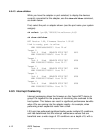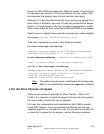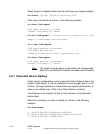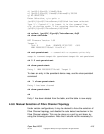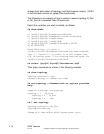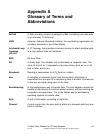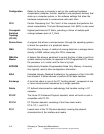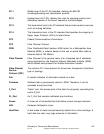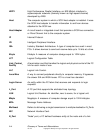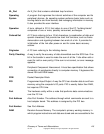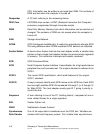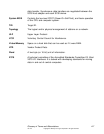
A-2 Glossary of Terms and Abbreviations
Ver. 2.0 Copyright © 2002 by LSI Logic Corporation. All rights reserved.
Configuration Refers to the way a computer is set up; the combined hardware
components (computer, monitor, keyboard, and peripheral devices) that
make up a computer system; or the software settings that allow the
hardware components to communicate with each other.
CPU Central Processing Unit. The “brain” of the computer that performs the
actual computations. The term Microprocessor Unit (MPU) is also used.
Crosspoint-
Switched
Topology
(FC-XS)
Highest performance FC fabric, providing a choice of multiple path
routings between pairs of F_Ports.
Device Driver A program that allows a microprocessor (through the operating system)
to direct the operation of a peripheral device.
DMA Direct Memory Access. A method of moving data from a storage device
directly to RAM, without using the CPU’s resources.
DMA Bus
Master
A feature that allows a peripheral to control the flow of data to and from
system memory by blocks, as opposed to PIO (Programmed I/O), where
the processor is in control and the flow is by byte.
EEPROM Electronically Erasable Programmable Read Only Memory. A memory
chip typically used to store configuration information.
EISA Extended Industry Standard Architecture. An extension of the 16-bit ISA
bus standard. It allows devices to perform 32-bit data transfers.
Exchange A term that refers to one of the FC “building blocks”, composed of one
or more nonconcurrent sequences for a single operation.
Fabric FC defined interconnection methodology that handles routing in FC
networks.
FC-EP The future FC Enhanced Physical standard, which will build on and is
compatible with FC-PH.
FC-PH FC Physical standard, consisting of the three lower levels;
FC-0, FC-1, and FC-2.
FC-0 Lowest level of the FC Physical standard, covering the physical
characteristics of the interface and media.



